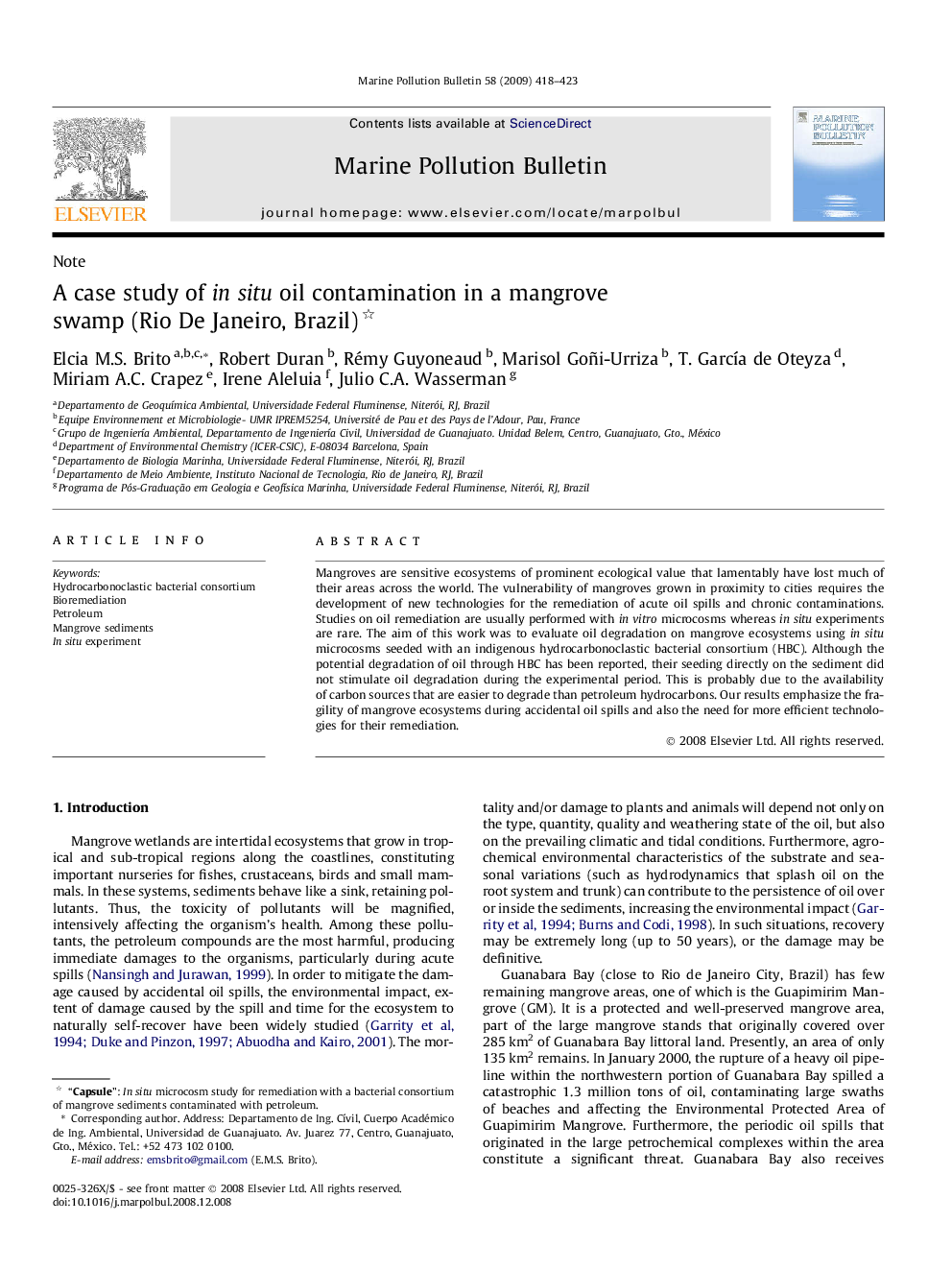| کد مقاله | کد نشریه | سال انتشار | مقاله انگلیسی | نسخه تمام متن |
|---|---|---|---|---|
| 4477181 | 1315712 | 2009 | 6 صفحه PDF | دانلود رایگان |

Mangroves are sensitive ecosystems of prominent ecological value that lamentably have lost much of their areas across the world. The vulnerability of mangroves grown in proximity to cities requires the development of new technologies for the remediation of acute oil spills and chronic contaminations. Studies on oil remediation are usually performed with in vitro microcosms whereas in situ experiments are rare. The aim of this work was to evaluate oil degradation on mangrove ecosystems using in situ microcosms seeded with an indigenous hydrocarbonoclastic bacterial consortium (HBC). Although the potential degradation of oil through HBC has been reported, their seeding directly on the sediment did not stimulate oil degradation during the experimental period. This is probably due to the availability of carbon sources that are easier to degrade than petroleum hydrocarbons. Our results emphasize the fragility of mangrove ecosystems during accidental oil spills and also the need for more efficient technologies for their remediation.
Journal: Marine Pollution Bulletin - Volume 58, Issue 3, August 2009, Pages 418–423